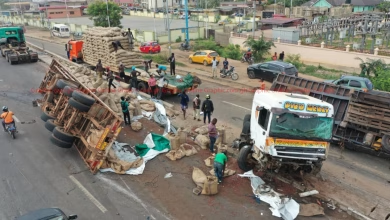The General Agricultural Workers Union (GAWU) has attributed the severe shortage of vegetables and subsequent price hikes to illegal mining activities, also known as galamsey, in the country.
In an interview, GAWU General Secretary, Mr. Edward Kareweh, explained that the country’s vegetable production hubs are largely located in areas where galamsey is prevalent, making it challenging for farmers to cultivate crops.
While acknowledging that natural factors like seasonal changes contribute to the shortage, Mr. Kareweh emphasized that the consequences of certain policies in the sector are hindering food production. Galamsey has resulted in soil erosion, water pollution, land destruction, heavy metal contamination, and soil infertility, he warned, cautioning that the situation will worsen if appropriate measures are not taken.
The effects of galamsey, according to Mr. Kareweh, have far-reaching environmental, social, and economic impacts on communities and the country, urging policymakers to implement sustainable mining practices to prevent food insecurity.
“Vegetables require clean water, almost equivalent to drinking water, but galamsey has destroyed most farms, and surviving ones are at risk during the rainy season when floods flow into vegetable farms,” he explained.
Mr. Kareweh also highlighted that certain policies exacerbate the situation instead of addressing the gaps created by nature. He cited the high cost of products, land preparation, and pesticides as critical challenges affecting vegetable production and the country’s agricultural sector.
The GAWU General Secretary stressed the need for a thorough investigation into the marginal increase in vegetable prices, which has resulted in a significant hike in prices, making vegetables increasingly unaffordable for consumers.




